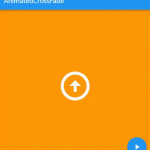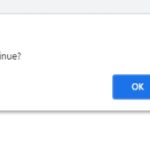Do you want to be a programmer? Do you know where to start? If so, this is the blog post for you. This comprehensive guide will show you how to become a programmer. We’ll cover topics such as programming languages, education requirements, and the various career paths available in the industry.
In this post, we’ll cover some of the most common questions about becoming a programmer. What programming languages should I learn? How much does it cost to become a programmer? Do you have any tips for finding a job after graduation? The answers to these and other related questions are below.
Table of Contents
What type of a programmer should I become?
In programming career, there are many paths to follow. You may want to become a web or app developer, mobile programmer, software engineer, data scientist… etc.
Some languages are more popular than others and each type of programming requires different skillsets so it is important that you know what kind of work would make the most sense for your strengths and interests.
In order to find out what’s best for you we recommend talking with people who currently have those jobs in addition to doing some research on your own about various aspects of these career paths–things like: level of education required, salary expectations (median), typical working hours per week, job growth projections by 2020/2025–to see which one might be right for you.
What programming languages should I learn?
There are lots of programming languages to choose from and not all of them are created equal. Some common ones that you should be aware of include Java, JavaScript, Python, C++, Swift/Objective-C (iOS), Ruby on Rails (web development platform).
The programming language you learn is up to personal preference but it’s important to realize the differences between them before deciding which one will best suit your needs.
For example: if you’re only interested in web development then learning a language like JavaScript would be more beneficial than learning Java or C++. If instead you want to work with mobile apps for iOS then knowing Objective-C can help as well since Apple has its own proprietary version of this language called Swift. The list goes on depending on what type of work you want to do.
It’s hard to find a universally “best” language because they each have their advantages and disadvantages depending on the type of work, background experience with programming languages, how much time is available for learning them, etc…
My recommendations for beginners:
- Mobile: Flutter
- Game: Unity
- Web: PHP (WordPress), HTML, CSS
- Desktop: C#
How much does it cost to become a programmer?
The range of cost to become a programmer is wide and depends on your background, the type of programing language you want to learn, how much time one has for learning them.
There are more and more developers that are self-taught.
Some people find it helpful when they take classes from reputable colleges or universities because in addition to teaching programming languages, there’s also content about team dynamics and other important aspects of life as an IT professional. The downside is these courses can be expensive–typically costing tens of thousands of dollars per year–and require hours away from work every day.
Other options such as looking up YouTube videos or reading books may not provide the same level knowledge but could save money if done efficiently while still providing some insight.
Some people will take a vocational school course and then start applying to programming jobs.
Others may find work at an IT company after completing the required training courses for that industry, while others might want to get their PhD in computer science so they can teach at universities or research departments.
What matters most is finding out what’s going to best suit your needs–what kind of person you are, where you live, how much money you have available–and picking accordingly.
Tips for finding a job?
Programming jobs can be tough to find. It’s important to know what you’re looking for in a job so you can feel confident that it’s the right fit for you. If this sounds like something that would interest you, continue reading!
Programming jobs are often hard to come by because of how competitive they are. One way to get ahead is by being specific about what type of job and company interests you.
1. Do your research and find out what types of programming jobs are in demand.
2. Find a mentor or someone experienced in the field that can help you get started.
3. Practice coding on your own – this will help you understand how to solve problems and build things from scratch.
4. Build an online portfolio with examples of projects you’ve completed.
5. Don’t be afraid to ask for feedback on your work, it’s normal.
6. Apply for as many positions as possible, even if they don’t seem like a good fit – you never know when something might change.
7. Take advantage of any networking opportunities – these could be things like attending meetups or conferences related programming topics, joining relevant online communities or even just chatting with friends who have connections in the industry.

